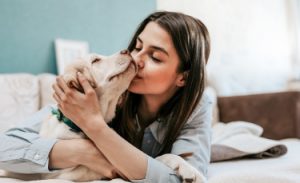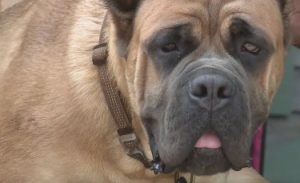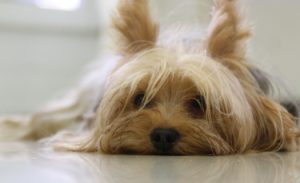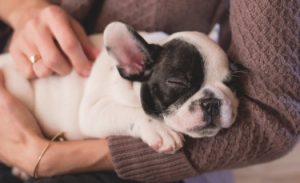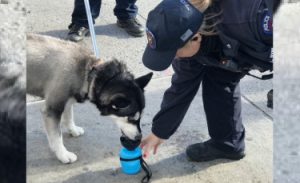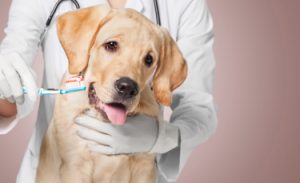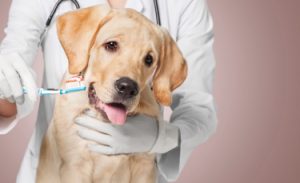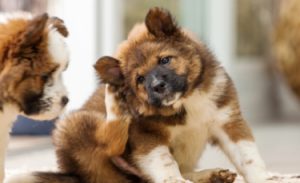Other names: Bavarian Mountain Blood Research Dog, Bayerischer Gebirgsschweisshund
The Bavarian Red Dog is a medium-sized dog, robust, with developed musculature, harmoniously built and whose appearance gives off an impression of lightness and flexibility. Seen in profile, the Bavarian Red Dog can, in a way, resemble a higher legged Dachshund.
<!–
–>
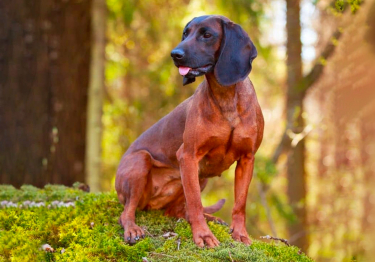
| Short | |
| Germany | |
| Average | |
| Long |
| Sex | Weight | Cut |
|---|---|---|
| Female | From 20 kg to 25 kg | From 44 cm to 48 cm |
| Male | From 20 kg to 25 kg | From 47 cm to 52 cm |
History of the breed
The Bavarian Red Dog descends from the brachets , primitive hounds. The most obedient and calm subjects were selected so as to develop, over the generations, the breed of the Red Dog of Hanover. In the latter, lighter dogs were retained by Baron Karg-Bebenburg of Reichenhall from the 1870s, in order to create a breed capable of evolving with ease on the Bavarian mountainous hunting grounds . This is how the Bavarian Red Dog, as we know it today, was born. The Bavarian Red Dog Club was founded in Munich in 1912.
Physical features
His hair: short, tight, lying flat against the body, texture rougher than soft.
Its color: fawn (red, deer, brown, yellowish or light), gray fawn, brindle or with small black spots. The hair color is darker on the muzzle and ears.
His head: carried horizontally or slightly raised. The skull is quite large and very slightly domed. The frontal depression is clear and the superciliary arches are well developed. The stop is marked and the occipital bone much less. The nose is black or dark red, the muzzle slightly shorter than the skull, rather broad and does not end in a point. The lips are moderately thick, with the corner well visible. The jaws are strong and articulated like scissors. The cheeks are only moderately marked.
His ears: rather heavy, set high, hanging down, wide at their set and rounded at their end.
His eyes: of moderate size and roundness, dark brown or lighter in color, displaying an attentive gaze.
Its body: writable in a rectangle, being a little higher (at the withers) than long, slightly raised at the back. The neck is medium in length and strong, with a slight dewlap. The topline is slightly ascending between the withers and the hindquarters. The withers are only very slightly marked, the back is solid and flexible, the loins rather short and broad, the croup wide and straight, the chest well developed and lowered, the underline gradually ascending to the rear and the belly slightly upturned.
Its tail: moderately long, high set, carried horizontally or drooping obliquely.
Behavior and character
| Affectionate | |
|---|---|
| Calm | |
| Protective | |
| Independent | |
| Hunter | |
| Barks / howls |
Behavior with others
| Cohabitation with children | |
|---|---|
| Sociable with other animals | |
| Love strangers |
The Bavarian Red Dog has a temper that is both calm and self-confident . He is neither fearful nor aggressive. Very attached to his master , the Bavarian Red Dog is much more suspicious of strangers. He is also docile. A hunter with multiple qualities , he specializes in blood research.
The Bavarian Red Dog
is it right for you? Take the test!
Education
| Clever | |
|---|---|
| Obedient |
Rather obedient, he does not require insurmountable efforts during his education. He just needs to quickly acquire the basics of good behavior and recall , in addition to quality socialization . He learns gently and with a dose of firmness , but without balance of power or brutality.
Living conditions
| Suitable for apartment living | |
|---|---|
| Good for new masters | |
| Love it hot | |
| Love the cold |
Having retained most of his hunting instincts, the Bavarian Red Dog must be able to lead an active life , while having the opportunity to enjoy the company and availability of his master and his family. It can adapt to city life, provided it is taken out frequently and provided with a sufficiently large space for expression, such as a large fenced garden .
Health
| Solid | |
|---|---|
| Ease of gaining weight |
the Bavarian red dog is a robust healthy dog . As long as he receives the necessary attention and care, with a balanced diet adapted to his activity, there is not much to fear on this point. There is no predisposition to a particular disease in this breed.
Hypoallergenic breed
No
Litter size
Between 4 and 6 puppies
| Major concerns |
|
| Occasional concerns |
|
To guard against these risks and insure your companion in the event of health problems, Woopets recommends a Bavarian Red Dog dog insurance .

function showAssuranceForm () {var siteReferer = var id_race_association = ‘128’; //console.log(id_race_association);success: function (html) {}});}document.addEventListener (‘DOMContentLoaded’, () => {$ (‘# assuranceModalBanner’). on (‘show.bs.modal’, function (event) {showAssuranceForm ();});});
Life expectancy
Minimum: 11 years old
Maximum: 13 years
The life expectancy of a Bavarian Red Dog is, on average, between 11 years and 13 years.
Calculate the human age of your Bavarian Red Dog!
To choose… 1 year 2 years 3 years Four years 5 years 6 years 7 years 8 years 9 years 10 years 11 years old 12 years 13 years 14 years old 15 years old 16 years old 17 years 18 years old 19 years old 20 years 21 years old
Maintenance and hygiene
| Ease of maintenance | |
|---|---|
| Cost of maintenance | |
| Hair loss |
| Drool level | |
|---|---|
| Ease of grooming |
the Bavarian red dog is easy to maintain . The latter just needs to be done on a regular basis.
It is recommended to brush the dog once a week . Its hair, ears, eyes and pads should be examined after each outing in the wild to detect and remove any debris or external parasites.
His teeth need to be brushed frequently to remove tartar build-up and the proliferation of bacteria. Finally, if they do not wear out naturally, its claws need to be cut. If you are new to this, it is recommended that you seek advice from a veterinarian or groomer.
Price and budget
Purchase price
Mini
800 € Maxi
1000 €
The purchase price of a Bavarian Red Dog is between € 800 and € 1000.
Annual maintenance cost
Mini
400 € Maxi
600 €
The annual maintenance cost of a Bavarian Red Dog is between € 400 and € 600.
No name is currently proposed. Use our tool to find the name of your Bavarian Red Dog!
Food
The Bavarian Red Dog needs a quality diet, rich in protein and adapted to its level of physical activity, size and age. Its food is to be divided into 2 meals per day .
Want the best for your dog?
Create tailor-made food for your Bavarian Red Dog
I discover !
PROMO -30% | Delivered to you!

Physical activity
| Athletic | |
|---|---|
| Energy level | |
| Potential to play |
If it is calm, the Bavarian red dog It is nonetheless a dog that needs to be stimulated by daily exercise . Long daily walks , ideally in the forest and in any other spacious and natural environment, are recommended.
Competitions
| Classifications & Standards |
|
Others
| Master character <span class="btnTooltip qTip2" title="- Calm: the master must be gentle and know how to show patience. – Active: the owner must be energetic and dynamic to live in harmony with his dog. – Hyperactive: the owner must be stimulating and very restless to suit the temperament of his dog.”> |
Active |
|---|
We talk on the forum
my goldfish
Margin Message
urgent a robin is knocking on my window and he is unconscious !!!
Message from maellev
bam the dog now bam the dog’s revenge
Message from angeacorne
Amazing – a dog saves another dog
Message from Joo
My dog has doggy breath!
Message from Jérôme Bernier
Do you have a question about the Bavarian Red Dog?
Do not hesitate to ask Woopets visitors for advice on the forum!
FCI Information
FCI No.
217
FCI Group
Group 6: Hounds, Blood Test Dogs and Related Breeds
Recognized by FCI
Since 1959
</div


